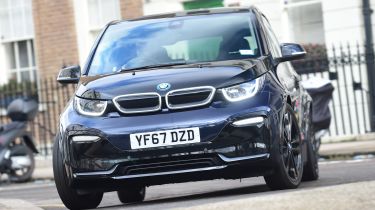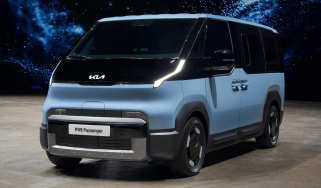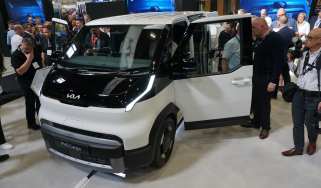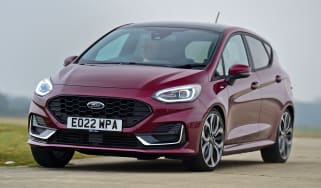BMW i3 (2013-2022) review - Engines, performance and drive
Sprightly electric performance and good handling make the i3 fun; a compromised ride can’t spoil it

The BMW i3 makes use of a ground-up design, advanced construction methods and carbon fibre to keep weight to 1,270kg in the earlier, smaller battery models and 1,365kg in the 42.2kWh cars.
Not only does this weight saving have a positive impact on efficiency and range, but it’s also a huge factor in the way the i3 drives. Around town the i3 feels agile, with responsive and quick steering (it’s only got to direct those ultra-thin, low-resistance tyres) and acceleration is instant thanks to the EV powertrain.
Hit a rough road and you’ll be quickly reminded that the tyres are designed for efficiency over comfort, as is the relatively hard suspension. The i3s, especially with its 20-inch rims and 10mm lower suspension and uprated springs and dampers, does struggle with potholes and bumps.
On country roads the ride settles down and the i3 is less inclined to follow ruts in the tarmac. There’s not much grip afforded by the skinny tyres, and the i3’s rear-wheel drive set-up (including its rear-mounted motor) mean it’s quite easy to find understeer should you push on too enthusiastically. Despite the relatively nippy acceleration (0-62mph in 7.3 seconds for the i3 and 6.9 seconds for the i3s), the i3 never really goads you into sporty driving however.
The silence of the powertrain combined with the high(ish) driving position leaves you feeling the i3 is much more suited to steady, relaxed driving. The brakes go into regeneration mode as soon as you lift off the accelerator and it has quite a forceful braking effect, but unlike some pure-electric cars with regenerative braking, the brake pedal feels positive and there’s no slack in the pedal’s action.
Engines, 0-60 acceleration and top speed
The i3 was available with two powertrains in the latter stages of its life. A 168bhp motor with 250Nm of torque was mated to a single-speed automatic transmission, helping the i3 accelerate from 0-62mph in 7.3 seconds and on to a top speed of 93mph.
The more sporty i3s had a smidge more power at 182bhp and 270Nm of torque (although no M Sport badging) - resulting in a 0-62mph time of 6.9 seconds and a not-so heady 99mph top speed.








